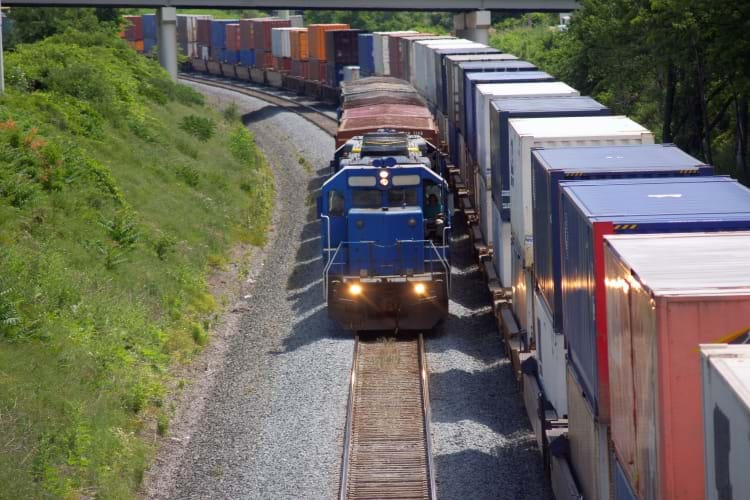Rail/Intermodal
Workers at CN and CPKC overwhelmingly voted in favor of a strike due to management’s refusal to accept what their union considers to be safety-critical rest provisions. If an agreement is not reached between the two Canadian railroads and the Teamsters Canada Rail Conference, a worker stoppage could begin as soon as May 22.
A strike at both Canadian Class Is could have huge impacts on the system. So far in 2024, Canadian railroads have carried nearly 25% of all North American rail traffic, including about 32% of grain, about 50% of petroleum and about 29% of chemicals.
Reciprocal Switching Rule
The Surface Transportation Board unanimously voted in favor of a reciprocal switching rule that applies to certain shippers whose facilities are only served by one Class I Railroad. The rule, which the board adopted on April 30, is available at https://www.stb.gov/proceedings-actions/decisions.
The rule will allow captive shippers to petition the STB for a reciprocal switching agreement in an effort to mitigate poor service levels from the incumbent Class I. In announcing the rule, STB said it considers the rule to be a significant step toward encouraging Class I Railroads to improve and maintain higher service levels by allowing a competing line to offer better service.
Under the rule, STB will rely on objective performance standards that address reliability in time of arrival, consistency in transit time, and reliability in providing first-mile and last-mile service. However, the board also will consider certain affirmative defenses and the practicability of an agreement.
STB will require all Class I Railroads to submit certain service data, which will be generalized and publicly accessible, on an ongoing and standardized basis. Railroads will also be required to provide individualized, machine-readable service data to a customer upon a written request from that customer.
Oberman Retirement
In a move likely related to the board’s final rule on reciprocal switching, STB Chairman Martin Oberman announced that he is retiring on May 10.
Oberman’s term on the board technically ended at the end of last year, but he has continued as chairman under a holdover arrangement that could have left him in place as chairman for up to a year.
Given his advocacy for rail service improvement, Oberman likely stayed on just long enough to ensure approval of the reciprocal switching rule. He issued a lengthy statement this week on the ways in which he sees the new rule as breaking new ground.
Railcar Orders and Deliveries
The Railway Supply Institute’s American Railway Car Institute Committee (ARCI) this week released railcar data for the first quarter. The ARCI report shows orders down 30.2% y/y, deliveries down 2.0% and backlog down 17.2%.
Rail Traffic
North American carload volumes were down 5.3% y/y for week 17, marking the 13th week of y/y declines in 2024, according to data from the Association of American Railroads. The commodities experiencing the greatest y/y declines include coal, metallic ores & metals, and grain.
Year to date, rail traffic is up 2.0% y/y, driven by intermodal, which is up 8.4%. Carload traffic is down 3.9%. Carload’s decline is mostly due to coal, which is down 16.6%, although most commodities are negative versus 2023. Only petroleum products, chemicals, and motor vehicles are up y/y for the YTD.

